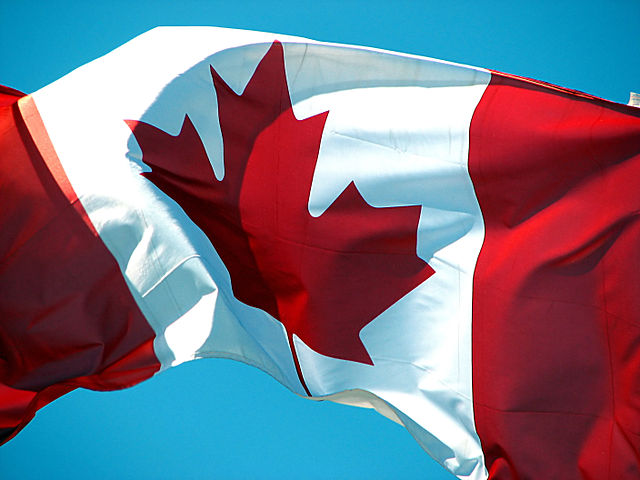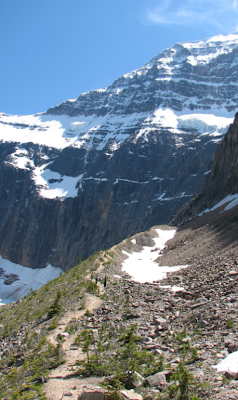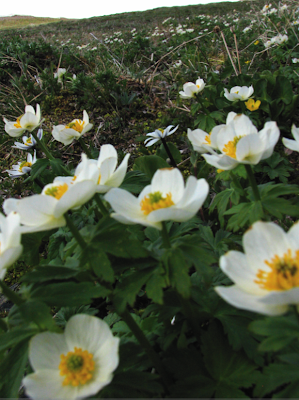Viewing: Blog Posts Tagged with: Canada Day, Most Recent at Top [Help]
Results 1 - 9 of 9
Blog: Whateverings (Login to Add to MyJacketFlap)
JacketFlap tags: fun, cute, cartoon, comic, General Illustration, paula j. becker, beaver, paula becker, canada day, Cartoons & Comics, happy canada day, maple leaf, canadian flag canadian beaver, Add a tag
Blog: OUPblog (Login to Add to MyJacketFlap)
JacketFlap tags: Books, History, First Nations, America, This Day in History, Canada Day, war of 1812, *Featured, Canadian Literature, British North America Act, Canadian diasporic authors, Canadian heritage, Chinese Canadians, Chinese Immigration Act, Cultural memory, Cynthia Sugars, eleanor ty, Fête du Canada, laurier, wilfrid, Add a tag
By Eleanor Ty
Canada Day (Fête du Canada) is the holiday that suggests summer in all its glory for most Canadians — fireworks, parades, free outdoor concerts, camping, cottage getaways, beer, barbeques, and a few speeches by majors or prime ministers. For children, it is the end of a school year and the beginning of two months of summer vacation. For adults, it is a day off work, often a long week-end to catch up on gardening, getting together with family and friends, and relaxing. We wave flags, dress in red and white, and say happy birthday to Canada. After six months of complaining about the snow and the cold, we complain about the heat and mosquitoes.
Historically however, 1 July 1867 marked a more regional rather than national event. The occasion commemorates the joining of the British North American colonies of Nova Scotia, New Brunswick and the Province of Canada (later to become Ontario and Quebec). Canada became a dominion of the British empire, and remained linked to Britain until 1982 when Canada became an independent nation, and when the holiday was renamed (from Dominion Day).
Unlike our US counterparts who find many occasions to show their patriotism, Canadians are more restrained in their expression of their love for their country. We become fiercely “Canadian” during the Olympics, when our writers (usually named Alice or Margaret) win Literary prizes, and when our hockey teams win the Stanley Cup. Our national holidays are still based mainly on the Christian calendar (Good Friday, Easter, Christmas), or else reveal the vestiges of our British heritage (Victoria Day). Canada Day is one of the few days we allow ourselves to indulge in national and civic pride.

Happy Canada Day! Photo by Ian Muttoo. CC BY-SA 2.0 via Wikimedia Commons.
However, Canada Day evokes different feelings for different people. Feminist activist Judy Rebick, who supported the “Idle No More” movement last year, reminds us that the British North America Act signed on 1 July was “based on the annihilation of most and marginalization of the rest of First Nations.” She says that she does not celebrate Canada Day and never has. Similarly, in a witty and ironic piece that satirizes the inadequacy of the reparations that have been made to First Nations and aboriginal people, playwright and filmmaker Drew Hayden Taylor writes a list of apologies (following the style of Stephen Harper who apologized to First Nations, Inuit, and Métis for the imposition and effects of the residential school system). Hayden Taylor’s tongue-in-cheek apologies include occupying land that “one day, your people would want” and for not staying in “India, where we were originally thought to have come from.” For Chinese Canadians, 1 July is remembered as “Humiliation Day” because in it was on this day in 1923 that the Chinese Immigration Act was enacted. This act, also known as the Chinese Exclusion Act, banned Chinese immigration to Canada until it was repealed in 1947.
The point is that what we celebrate as a nation– the history, the symbols, the rituals, and the food—is selective. When we talk about the past, it is not necessarily about what happened, but the bits and pieces that we choose to remember, highlight, and to commemorate. It is significant that in 2012 Prime Minister Stephen Harper chose to highlight the War of 1812 as a “seminal event in the making of our great country” which he conveniently reconfigures as a “war that saw Aboriginal peoples, local and volunteer militias, and English and French-speaking regiments fight together to save Canada from American invasion.” Harper chooses not to talk about the dispossession of First Nations people from their lands, British administrators’ view of them as dependents and impediments to expansion at that time, but instead, embraces them in his inclusive, revisionary history.
Recent interest in memory, preservation, and heritage have made us become more aware of how history has been presented to us, to the ways our relationship with the past have been mediated by literature, films, images, and national commemorations. The “idea” of Canada can be seen as a consciously constructed culture of memory since its foundations. For example, Kimberly Mair looks at the way the ordering and spatial distribution of objects in a museum neutralizes the colonial and genocidal aspects of aboriginal history for visitors, while Shelley Hulan searches for references to First Nations in the stories of Alice Munro. Doris Wolf and Robyn Green look at works that challenge old ideas of Canada as a settler nation by focusing on the experiences of aboriginal peoples in residential schools.
Other fascinating aspects of memory are trauma and forgetting. Friedrich Nietzsche pointed out that although history is important, the ability to forget is a necessary part of happiness: “He would cannot sink down on the threshold of the moment and forget all the past, who cannot stand balanced like a goddess of victory, without growing dizzy and afraid, will never know what happiness is – worse, he will never do anything to make others happy.” Recently, Canadian diasporic authors such as Madeleine Thien, David Chariandy, Dionne Brand, and Esi Edugyan reveal what it means to be haunted by their past in a globalized age. By paying attention to how we remember, the roles played by literary and cultural representations in constructing our memories, we see how the present is not only influenced by the past, but how the present continues to rework and reshape our understanding of the past.
Eleanor Ty (鄭 綺 寧) is Professor of English & Film Studies at Wilfrid Laurier University in Ontario, Canada. She has published on Asian North American and on 18th Century literature. Author of Unfastened: Globality and Asian North American Narratives (U of Minnesota P, 2010), The Politics of the Visible in Asian North American Narratives (U Toronto P 2004), she has co-edited with Russell J.A. Kilbourn, The Memory Effect: The Remediation of Memory in Literature and Film (Wilfrid Laurier UP 2013), with Christl Verduyn a collection of essays, Asian Canadian Writing Beyond Autoethnography (Wilfrid Laurier UP 2008). With Cynthia Sugars, she has co-edited Canadian Literature and Cultural Memory.
Subscribe to the OUPblog via email or RSS.
Subscribe to only history articles on the OUPblog via email or RSS.
The post Cultural memory and Canada Day: remembering and forgetting appeared first on OUPblog.
Blog: Manelle Oliphant Illustration (Login to Add to MyJacketFlap)
JacketFlap tags: Uncategorized, Holiday, Canada Day, Independence Day, For Kids, Moms, and Teachers, Free Coloring Page Day, Add a tag
Manelle Oliphant Illustration - Children's book illustrator and writer
I have a coloring page double feature today. Next week is a patriotic week for North America. Canada day and Independence day (Have I mentioned this is my FAVORITE holiday?) are both next week. So I made a page for both. Have fun at parades and watching fireworks! (I love parades and fireworks) And don’t look for another coloring page until the Friday after the 4th.


The post Free Coloring Page Friday: Patriotic appeared first on Manelle Oliphant Illustration.
Blog: Hazel Mitchell (Login to Add to MyJacketFlap)
JacketFlap tags: maple leaf, sketch for today, photoshop colouring, Hazel Mtichell, mouse, children's illustration, children's illustrator, digital sketch, Canada Day, Add a tag
Blog: Whateverings (Login to Add to MyJacketFlap)
JacketFlap tags: Miscellaneous, Sketches, breakfast, parade, quebec, canada day, 2009, pointe claire, july 1, Add a tag
I took part of yesterday off to enjoy some of the Canada Day activities that were within walking or cycling distance of where I live. First I had a late breakfast at the Beaconsfield Yacht Club, where I leisurely sketched the aftermath of my meal while drinking hot tea. I also sketched a few of [...]
Blog: What are we doing today Mom? (Login to Add to MyJacketFlap)
JacketFlap tags: Canada Day, Add a tag
While they might have stood still well I sang out O Canada, I don't think these two "guards" were very protective of the cupcakes. They might have been the real icing snitchers - see evidence on E's lips. Our shirts from last year have gotten a lot of use and still fit for this year's party!
Blog: It's All Good (Login to Add to MyJacketFlap)
JacketFlap tags: Alane, Canada Day, BCLA, Add a tag
I am sure all of you have been wondering what our beloved Alane has been doing, since she's moved North. Now I have a great answer: she's become the new Executive Director of the British Columbia Library Association.
We are so proud of her and expect to see even more great things come from BCLA now!!
Blog: Scribbled Business (Login to Add to MyJacketFlap)
JacketFlap tags: national park, take a day off, career, pictures, hiking, break, crystal driedger, jasper, focus, canada day, Add a tag



 Happy Canada Day especially to those readers from Canada today!
Happy Canada Day especially to those readers from Canada today!
This weekend I took a break from all things related to my career. For 3.5 days a few of my friends and I hiked through and up the Canadian Rockies (Jasper national park) and while I brought my sketchbook I did not crack it. I instead focused on not falling down steep mountain cliffs, feeling "the burn" and swimming in a glacially fed lake.
Take it from me - if there's one thing we should focus on during Canada day it shouldn't be our career.
Blog: PaperTigers (Login to Add to MyJacketFlap)
JacketFlap tags: Children's Books, Young Adult Books, Storylines, Kids- Lit Quiz, Margaret Mahy Medal, Wayne Mills, Add a tag
University of Auckland education lecturer Wayne Mills, initiator of children’s literature quizzes in New Zealand and internationally, is the winner of the 2008 Storylines Margaret Mahy Medal and Lecture Award. The award recognises Mills’ achievement in establishing the popular Kids’ Lit Quiz held annually in New Zealand since 1991 and in expanding it to an international event in 2003.
“The quiz is about rewarding kids who love reading and who are good at it,” says Wayne Mills. “The competitive side to the quiz is a real draw and I believe it is specifically benefiting boys as a result.” The first event featured 14 teams; New Zealand now has 423 teams from 244 schools.
Teams of four 11-13-year-olds answer wide-ranging questions about children’s books; they ‘train’ by reading widely to build up knowledge. Regional winners compete in Auckland each June at the annual Storylines Festival. The winner represents New Zealand internationally, competing against teams from China, South Africa and Britain at the World Final, to be held this year in Oxford, U.K. The British Government, local bodies, publishers, private companies and top author Phillip Pullman have supported the event.
Mills is a senior lecturer at the Faculty of Education, University of Auckland School of Arts, Languages and Literacies, and a popular speaker around New Zealand. The Margaret Mahy Medal will be presented to him at the Storylines Children’s Literature Trust’s annual Margaret Mahy Day in Auckland on Saturday 29 March 2008.






Love this, Hazel!
Thanks Beth!